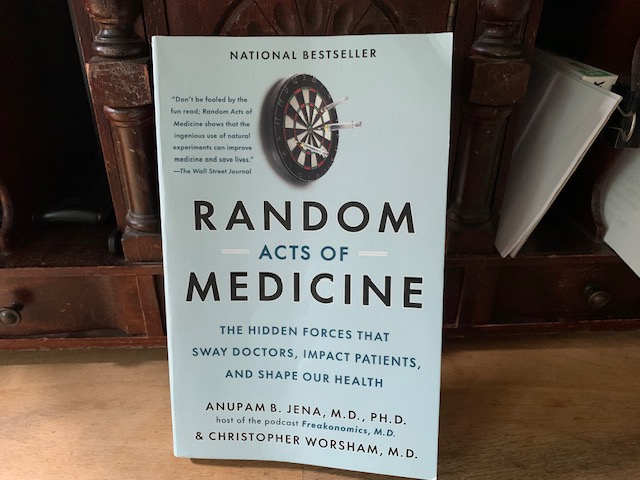Fact Check
Just a sample of Trump healthcare news
I’ve been avoiding writing about the impact of the Trump administration’s policies on healthcare. It’s overwhelming and it changes daily. But waiting for it to settle out isn’t working. It’s time to dig in. Reporters, in Connecticut and nationally, are doing an exceptional job of documenting this as it happens. Here are a small sample…
Read MoreICER’s 4th annual report finds progress in fair access to prescription drugs
Over the last four years, barriers facing patients getting access to cost effective drugs in commercial plans and the Veteran’s Administration have gotten better, according to ICER’s fourth annual Barriers to Fair Access report. The authors compare plan policies, including cost sharing, clinical eligibility, step therapy and provider restrictions, to independent standards for fair access…
Read MoreSix common myths about healthcare and three reasons why people believe them
Healthcare is complicated, people are easily confused, and there are powerful motivations to believe the many misconceptions. I was reminded of this at the last meeting of the industry-led group that is steering the state’s efforts to control healthcare costs. But the problem isn’t limited to industry representatives. Read more
Read MoreBook Club: Random Acts of Medicine
Deliberately randomized experiments in medicine and health policy are usually not possible, or even moral. But with increasingly available data and random changes in circumstances, natural experiments can teach us a great deal about what works and what doesn’t. Random events have a huge impact on our health, more than we’d like to acknowledge. Random…
Read MoreAnalysis: Why most other states use Medicaid MCOs and why CT doesn’t
A question has been posed to opponents of MCOs in Connecticut’s Medicaid program. Under the Rowland administration, Connecticut started using Medicaid MCOs, but we removed them in 2012 because they weren’t performing. Advocates are strongly opposed to using MCOs in HUSKY. But if they’re so terrible, why do 40 other states use MCOs to run…
Read MoreMedicaid MCOs and quality, access – What the evidence says
Go to the full report Governor Lamont is reportedly considering a plan to have private insurance managed care plans (MCOs) run Connecticut’s Medicaid program. Do MCOs improve quality or access to care in state Medicaid programs? We looked into the evidence. In a word, No. From the literature: The evidence does not support Medicaid MCOs…
Read MoreMedicaid MCOs and cost savings – What the evidence says
Go to the full report Governor Lamont is reportedly considering a plan to have private insurance managed care plans (MCOs) run Connecticut’s Medicaid program. Do MCOs save states money in state Medicaid programs? We looked into the evidence. In a word, No. From the literature: The evidence does not support Medicaid managed care saving money…
Read MoreBook Club – Super Forecasting: The Art and Science of Predicting
The title makes a big promise, but this book delivers. The book starts with examples through history of “experts” who were followed, even when evidence they were wrong was obvious. Healthcare is full of these examples, and the authors cite a few. In 2005, Phillip Tetlock published a very large 20-year study measuring the accuracy…
Read MoreCT again among healthiest states overall, but with big areas of concern
Connecticut ranked 4th healthiest among states in this year’s America’s Health Ranking, from the United Health Foundation. We were the best state in climate policies, childhood immunizations, and adult dental visits. But we were in the bottom on other indicators. Connecticut is in a very healthy region of the US, with New Hampshire (#1), Massachusetts…
Read MoreICER seeking nominations for New England evidence review council
The Institute for Economic and Clinical Review (ICER) is seeking nominations for new members to the New England Comparative Effectiveness Public Advisory Council (New England CEPAC). In my time on the New England CEPAC, it was an exciting dive into learning new things with a team of exceptional experts and colleagues from across the region.…
Read More








